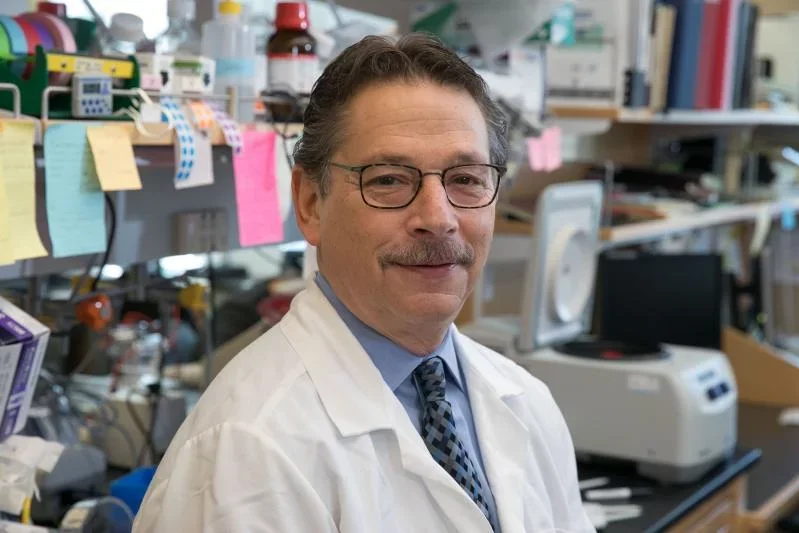Gene Therapy
The Future Of Gene Therapy

Donald Kohn, MD
Director, UCLA Human Gene and Cell Therapy Program
Member, Eli and Edythe Broad Center of Regenerative Medicine and Stem Cell Research at UCLA
Correcting Genetic Mutations
Dr. Kohn develops techniques to correct genetic mutations that cause certain blood diseases. His gene therapy has cured around 50 babies suffering from adenosine deaminase deficient severe combined immunodeficiency (ADA-SCID), often called bubble baby disease.
The success of the ADA-SCID treatment signifies a translational victory for gene therapy, inspiring hope for its application in other diseases.
Gene Therapy Success: A Cure for ADA-SCID
Through several clinical trials, Dr. Kohn has used gene therapy to cure nearly 50 babies born with ADA-SCID, a life-threatening condition caused by a genetic mutation in the ADA gene. This mutation results in a lack of the adenosine deaminase enzyme, which is essential to the immune system’s ability to fight off infection. Children with the disease lack almost all immune defenses. If untreated, ADA-SCID is often fatal within two years.
The treatment involves the extraction of the baby’s own blood-forming stem cells—which are capable of creating all types of blood cells—from the baby's own bone marrow. The normal ADA gene is then added to the blood-forming stem cells in the lab using a virus delivery system that facilitates the transfer of corrected genetic information. The genetically modified blood-forming stem cells are then injected back into the baby in what is known as an autologous transplant. The genetically altered blood stem cells form new, functional immune systems in the babies.
Read more in Clinical Efficacy of Gene-Modified Stem Cells in Adenosine Deaminase–Deficient Immunodeficiency, published in the Journal of Clinical Investigation.
Translating Gene Therapy Techniques to Cure More Patients
The methodologies of Dr. Kohn's cure for ADA-SCID hold promise for nearly all blood disorders caused by genetic mutations. Dr. Kohn’s current clinical trials aim to discover cures for sickle cell disease and X-linked Chronic Granulomatous Disease (X-linked CGD).
Untapped potential: If gene therapy can cure bubble baby disease, what other blood disorders might it correct?
Sickle Cell Disease
One of the most commonly inherited genetic blood disorders in the United States, sickle cell disease lacks effective treatment options. A mutation in the beta-globin gene leads to sickle-shaped red blood cells that don’t pass through blood vessels easily; this results in less oxygen distribution throughout the body and to vital organs. An approved gene therapy could fundamentally change the lives of sickle cell patients suffering from diminished quality of life, anemia, acute pain, frequent hospitalization, and often premature death.
The California Institute for Regenerative Medicine is supporting Dr. Kohn’s Phase I clinical trial to optimize a gene therapy for sickle cell disease with a $7.9 million grant.
X-Linked Chronic Granulomatous Disease (X-Linked CGD)
X-linked CGD is a complex disease characterized by mutations in a gene that gives white blood cells the ability to kill bacteria, fungi, and other infectious agents. X-linked CGD patients face frequent severe infections, inflammation, and sometimes, early death.
The California Institute for Regenerative Medicine is supporting Dr. Kohn’s clinical trial to test a gene therapy for X-linked CGD with a $7.4 million grant.
The word “cure” is important to Dr. Kohn.
He hopes to improve and extend patients' lives with gene therapies that do not just treat, but cure, diseases at their genetic origins. Searching for these cures drives Dr. Kohn to conduct trials that reveal novel gene-correcting techniques and change the way we reverse genetic blood disorders.
“If gene therapy can cure bubble baby disease, what other blood disorders might it correct? ”